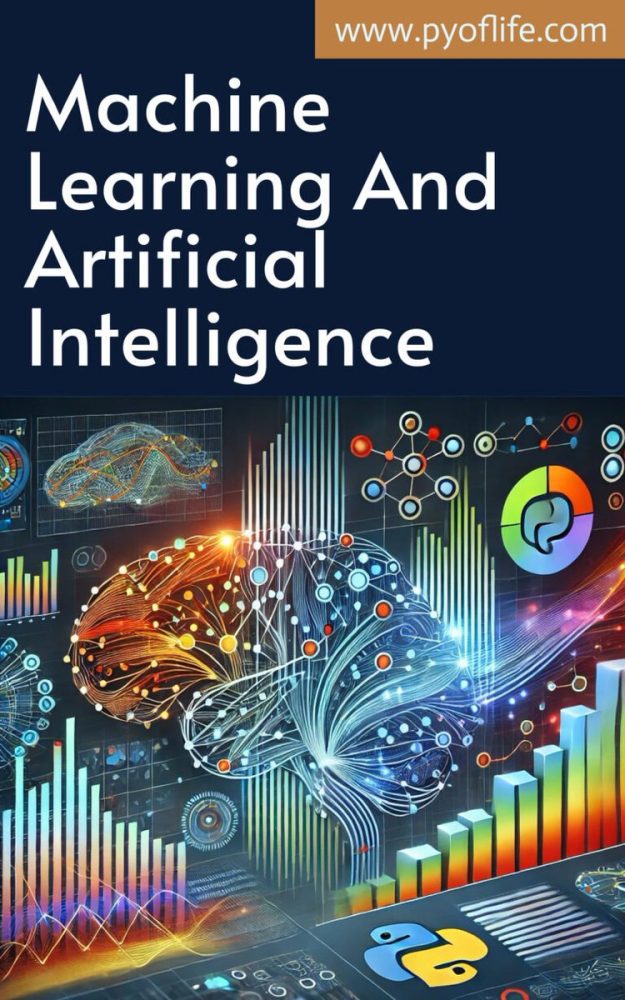Driving Technological Advancements
Machine Learning (ML) and Artificial Intelligence (AI) are at the forefront of technological advancements, revolutionizing industries and enabling systems to solve complex problems with minimal human intervention. These technologies are not only enhancing the speed and scope of discoveries but also transforming traditional methods across various sectors.
For instance, recent breakthroughs such as self-supervised learning and geometric deep learning have significantly improved training on unlabelled data and utilized the structural knowledge of data to boost accuracy and efficiency. This has been particularly impactful in fields like drug and protein design, where AI analyzes data forms, including images and sequences, to revolutionize traditional scientific methods.
AI’s role in hypothesis generation, experimental design, and analysis of large datasets has been pivotal. However, it’s essential to view AI as a tool to enhance human intellect rather than replace it. Over-reliance on these technologies could lead to a false sense of understanding among researchers.
Read more about the deskilling of human researchers due to heavy reliance on AI.
AI in Software Development and Business Operations
AI-powered software products and services are driving growth and innovation in the software industry. Companies like Microsoft, Google, and Amazon are collaborating with AI startups and research institutions to integrate AI technologies into their products and services. This integration leads to enhanced capabilities, increased efficiency, productivity, and potential cost savings for businesses.
The adoption of AI-powered software is expected to grow solidly in 2024, with subscription-based models for AI-powered software and services becoming more prevalent. Businesses of all sizes are seeking to enhance their operations and gain a competitive edge through AI integration.
For more insights, check out how AI is saving software companies’ dreams of growth.
AI’s Role in Content Creation and Information Retrieval
Large Language Models (LLMs) and generative AI are revolutionizing content creation, automation of tasks, and information retrieval. Companies like OpenAI (ChatGPT) and Google are leading the charge in developing these models. While these technologies are market-ready, they are still under development and have the potential to disrupt industries reliant on content creation, customer service, and information retrieval.
However, the spread of misinformation, bias in AI models, and job displacement due to automation are significant ethical considerations. The use of generative AI is growing, especially among younger users for work-based tasks and communication.
Learn more about the pervasive nature of AI.
AI in IT Industry and Cybersecurity
The IT industry is experiencing a transformation with the adoption of AI-powered automation tools. Examples include GitHub Copilot for software development and Microsoft 365 Copilot for business functions. AI is playing a crucial role in automating IT operations, enhancing decision-making, and improving customer experiences.
Gartner predicts that over 75% of IT operations teams will use AI by 2025. AI is also expected to enhance cybersecurity measures by enabling real-time threat detection and response.
For more details, read about how AI is revolutionizing the IT industry.
AI in Supply Chain Management
AI and ML are revolutionizing supply chain forecasting by providing unprecedented accuracy and efficiency. These technologies enable companies to predict demand more accurately, manage inventory effectively, and reduce waste, addressing significant challenges in supply chain management.
One of AI’s key benefits in supply chain forecasting is its ability to process and analyze large datasets in real-time, allowing companies to identify patterns and trends that may not be apparent through manual analysis. Generative AI can provide predictive probabilities of future disruptions, enabling companies to proactively manage risks and avoid potential supply chain bottlenecks.
Discover more about how AI helps overcome supply chain challenges.
AI in Job Market and Workforce Dynamics
AI is significantly impacting the workforce, potentially replacing jobs but also creating new opportunities. The rise of AI is driving demand for AI-related skills and training. Individuals can use AI to enhance their job prospects by acquiring proficiency in Python, statistical knowledge, and familiarity with machine learning frameworks.
Machine learning has become an attractive career choice due to its applications in customer insights and operational efficiency. Opportunities abound for both freshers and mid-career professionals, thanks to accessible learning platforms.
Explore how machine learning opens a window for mid-career job opportunities.
Related Articles
- The Best AI and Machine Learning Courses for Your Future
- Top Machine Learning Courses to Propel Your Career
- AI-Powered Cyber Attacks: The New Big Issue
- What You Need to Know About Artificial Intelligence
- 120 Mind-Blowing AI Tools by Kirk Borne


Looking for Travel Inspiration?
Explore Textify’s AI membership
Need a Chart? Explore the world’s largest Charts database
